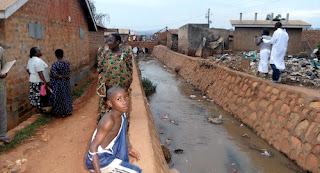As 2011 rolls in, exciting developments are happening within Spark. We’ve been organizing and watching MicroGrants on the ground in Rwanda and Uganda since July – and learned a lot! I’ve been profoundly moved by our communities involvement and growth through the process of designing and implementing their own projects, from a bore well in Rwanda to a school in Uganda.
Spark MicroGrants was founded in 2009 with the first MicroGrant supporting clinic workers in Ilolangulu, Tanzania to increase the number in-clinic births. Since our founding and with less than $30,000, we have sparked hundreds of people into action in 11 communities in Rwanda, Tanzania, Uganda, Ethiopia, and Guatemala. Our grantees are building schools, providing food to the poorest of their poor, establishing access to clean water, installing power systems, building defenses against flooding, and more. The communities identified the problem and the solutions – things they have never been asked to do before. Through the process we have seen communities transform into active participants of their own development. They gain hands on experience planning and implementing a project and are enabled to address a severe problem. It’s inspiring to witness.
After such positive experiences with each MicroGrant, we want to scale up. We can do many more MicroGrants with just one organizer in the field and we’ve fundraised over $16,000 of our $20,000 push for early 2011 funding, enabling four new MicroGrants in the new year. This is possible with special thanks to the Segal Foundation, Yahoo! and all the individual donors for their generous contributions. We’re one of ten finalists in a competition for $5,000 from the Community Tool Box. To win it we need your votes! To vote, visit: http://ctb.ku.edu/en/out_of_the_box/finalists.aspx
Along with starting new MicroGrants, we’re developing our follow through program, preparing to increase research around the model, and launching our U.S. based Advocates program (http://www.sparkmicrogrants.org/get-involved). In a few months, Justine Esquivel will be joining the Rwanda efforts to conduct research on our model and support programs here. Andy Pritchard is currently supporting our efforts by designing and launching the advocates program, where Spark enthusiasts in the U.S. can be involved with MicroGrant communities in East Africa through research, outreach and fund raising. Neal Lesh will continue to be our inspiring and organizationally brilliant Chief Strategy Officer and Teddy Svoronos will transition into the role of Chief Policy Officer, helping navigate the organization.
I’m incredibly grateful for having the opportunity to help build Spark MicroGrants and work hand-in-hand with both local communities and facilitators in East Africa and our growing global community committed to MicroGrants.
Here’s to wishing everyone a happy new year!


















